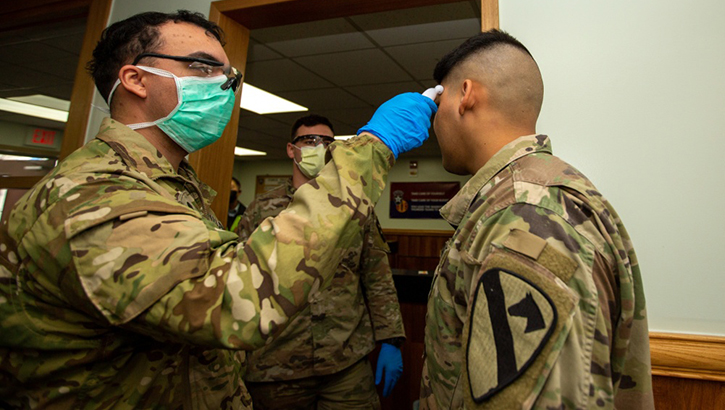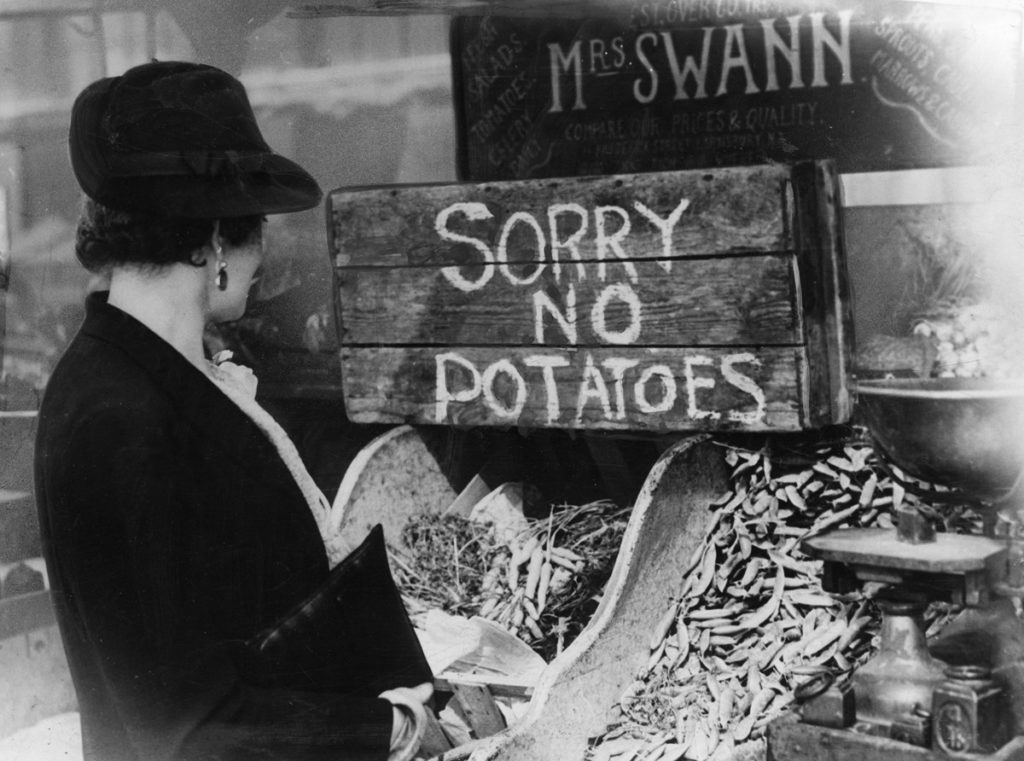
Three lessons from a city under siege
Ronnie Convery draws lessons from his parents on how to confront coronavirus.
My parents lived through World War II. They spoke of rationing, of months of separation and of anxiety (they would have called it “worry”) as a constant companion.
They told me about queues – queues for anything, it didn’t matter. Whether it be sausages or sawblades, if there was a queue it was worth joining.
They spoke of fear … fear came from the skies in the shape of German bombs.
They spoke of loss … brothers, cousins, boyfriends and girlfriends killed or maimed, lives upended, futures fused into twisted metal by bombs from beyond the clouds.
I used to listen to such tales with a kind of juvenile schadenfreude … how fortunate my generation was to have escaped trials such as these… And with a mild sense of boredom I would go back to my football magazine.
But life has a habit of playing tricks on us.

The current coronavirus outbreak is the nearest thing our generation may ever come to the horrors of war, though clearly the scale and context of the threat are significantly less. But what lessons can we learn from the spirit of our parents and grandparents?
1. Never take anyone for granted.
To a generation that lived through a world war, every departure, every goodbye was a reminder that life is short. There is a wise Italian phrase … “partire e’ un po’ morire” – to leave is to die a little. Our forebears understood that and so they appreciated better the time they had with loved ones.
2. Learn to use time well.
Wartime measures meant that people lived through the seasons without the support of artificial light. Night was dark, very dark, and woe-betide you if you put on a light and risked alerting enemy bombers overhead of your presence. So the need to occupy one’s mind with simple pastimes was absolute. To our digital eye it may seem quaint, but people learned to knit, to care for houseplants, to take better care of the living space, to read, to write. Boredom was turned into fruitfulness.
3. Turn the gaze inside.
The presence of danger leads naturally to reflection. There is a partial truth in the old phrase that “there were no atheists in the trenches.” Partial because there WERE atheists in the trenches, and it must have been doubly hard for those young men to survive the trials and horrors of war without the comfort of at least the possibility of faith. But for others, perhaps the majority, the emergency situation led more people to pray, to think, to position themselves in the great drama of life, death and eternity. In other words the forced closedown of the exterior life forced an opening to the interior life.
The bombs are not falling yet. Or perhaps they are. For our generation they are not bombs of flame and metal, but droplets of fever and fear.
We can learn so much from how to respond by remembering those “boring” chats with mum and dad, gran and grandpa … I wish I had paid more attention.
Like what you’ve read? Consider supporting the work of Adamah by making a donation and help us keep exploring life’s big (and not so big) issues!



